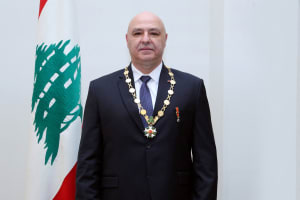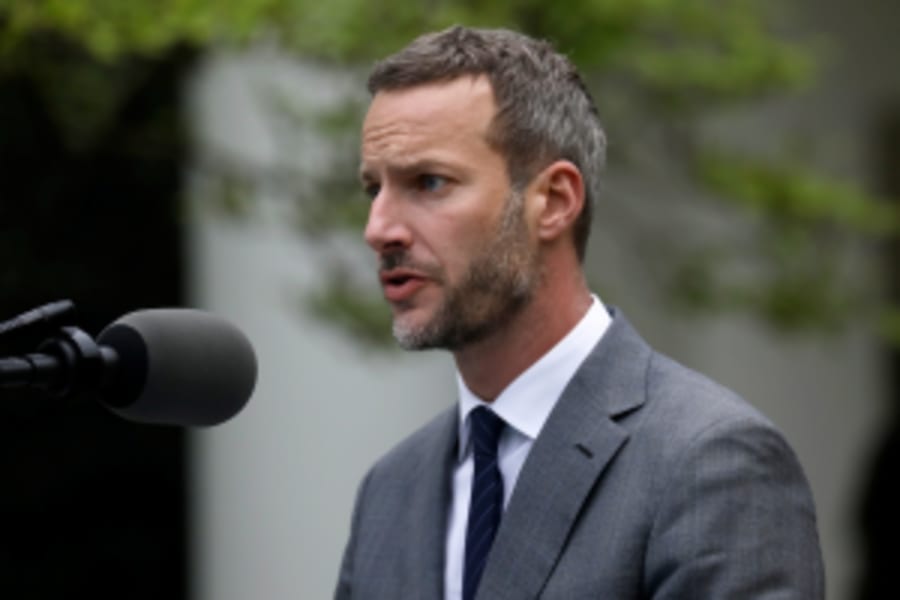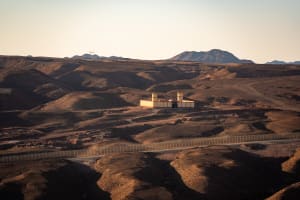A 'glimpse of hope' for Lebanon? Meet Nawaf Salam, the country's new Sunni prime minister

Not only does Lebanon have a new president in Joseph Aoun but Nawaf Salam was appointed as the new prime minister on Monday, signaling an interesting slant on the shifts in Lebanese politics.
Due to its mixed population of Christians and Muslims of various streams, the constitution of Lebanon established in 1926 dictates that the president must be a Maronite Christian, the prime minister a Sunni Muslim, and the speaker of the parliament a Shiite Muslim.
While the president is elected by popular vote, the prime minister is chosen by the legislative body. Salam was designated to lead with the approval of 84 out of the Lebanese parliament's 128 lawmakers while caretaker Prime Minister Najib Mikati received only nine votes.
There has been no president for two years and so the election of Joseph Aoun has been a great stride forward for democracy in the country, signaling the weakening of Hezbollah. Similarly, the choice of Nawaf Salam by the Lebanese government was not favored by the terror group, who have been blocking his appointment for years, claiming he is backed by the U.S.
“The enemy of my enemy is my friend”, so the saying goes, unless it’s the Middle East, in which case the dynamics of enmity fly in every direction. On one hand, Hezbollah may not approve of Salam saying he’s an American-backed candidate, but on the other, as a jurist, Salam was head of the International Court of Justice (ICJ) which ruled in July that Israel’s military presence in Gaza and settlement program in the West Bank was illegal.
Salam has also served as Lebanon’s ambassador to the UN, in which capacity he has been accused of shielding the Iranian regime, and voting alongside China and North Korea. Is Lebanon’s new prime minister bad news for Israel? Or not?
Born in Beirut in 1953, Nawaf Abdallah Salim Salam studied at Harvard University and Law school before his career in law and politics. He served as President of the UN Security Council in 2011, and also as the 27th President of the ICJ in 2024 up until his appointment as Prime Minister on Monday.
The New Arab news outlet describes the selection of Salam as illustrative of the “major shift in the power balance among Lebanon's sectarian factions” following the fighting between Hezbollah and Israel, along with the fall of Assad in Syria.
Salam has received support from both Christian and Druze factions, as well as prominent Sunni Muslim Members of Parliament (MP), “including Hezbollah allies and opponents of the group who have long demanded it give up its powerful arsenal, arguing it has undermined the state,” according to the New Arab.
In his first speech Salam promised to "extend the authority of the Lebanese state across all its territory" and "work seriously to completely implement UN resolution 1701", which is supposed to have seen the withdrawal of Hezbollah from the border with Israel.
Faced with a severe economic crisis in Lebanon, Salam said he was reaching across the political spectrum to help “rescue, reform and rebuild” the country, according to the Times of Israel. “I am not of those who exclude but those who unite,” he said.
“The time has come to say, enough. Now is the time to start a new chapter,” he urged, according to the Associated Press, adding that the people of Lebanon are suffering greatly as a result of “the latest brutal Israeli aggression on Lebanon and because of the worst economic crisis and financial policies that made the Lebanese poor.”
“Both my hands are extended to all of you so that we all move forward in the mission of salvation, reforms and reconstruction,” he said. Neither Salam nor Aoun are seen as belonging to the ruling class blamed for the corruption and mismanagement that contributed to the economic disaster that Lebanon has been going through over the past few years. YNet News has described the new leadership as representing a “glimpse of hope” for the people of Lebanon.
Commenting on the appointment, David Daoud, Senior Fellow at the Foundation for the Defense of Democracies gave his verdict, saying, “Nawaf Salam, if he forms a cabinet that gains parliament’s confidence, will enter office with a heavy burden to bear. He will have to address Lebanon’s compounding crises – a collapsed economy, a worthless currency, bad infrastructure, political and judicial corruption, and reconstruction."
"All in a term that is likely to last just over a year. Expectations should therefore be kept low, especially when it comes to disarming or restraining Hezbollah. Salam is highly unlikely to juggle his uphill battle to extract Lebanon from near-total collapse while clashing – politically or otherwise – with one of the country’s most socially and politically powerful factions,” Daoud continued.

Jo Elizabeth has a great interest in politics and cultural developments, studying Social Policy for her first degree and gaining a Masters in Jewish Philosophy from Haifa University, but she loves to write about the Bible and its primary subject, the God of Israel. As a writer, Jo spends her time between the UK and Jerusalem, Israel.
You might also like to read this:















